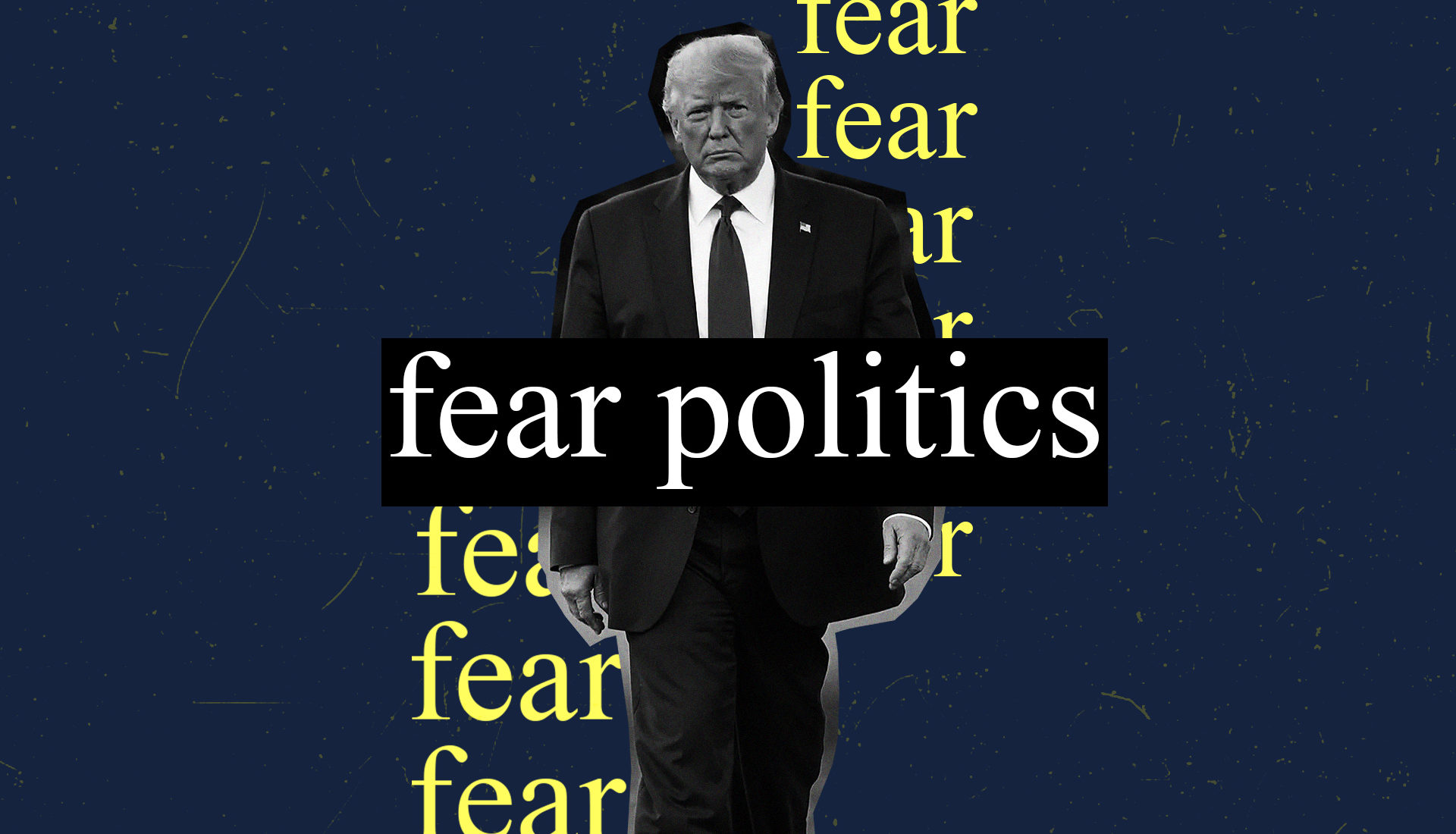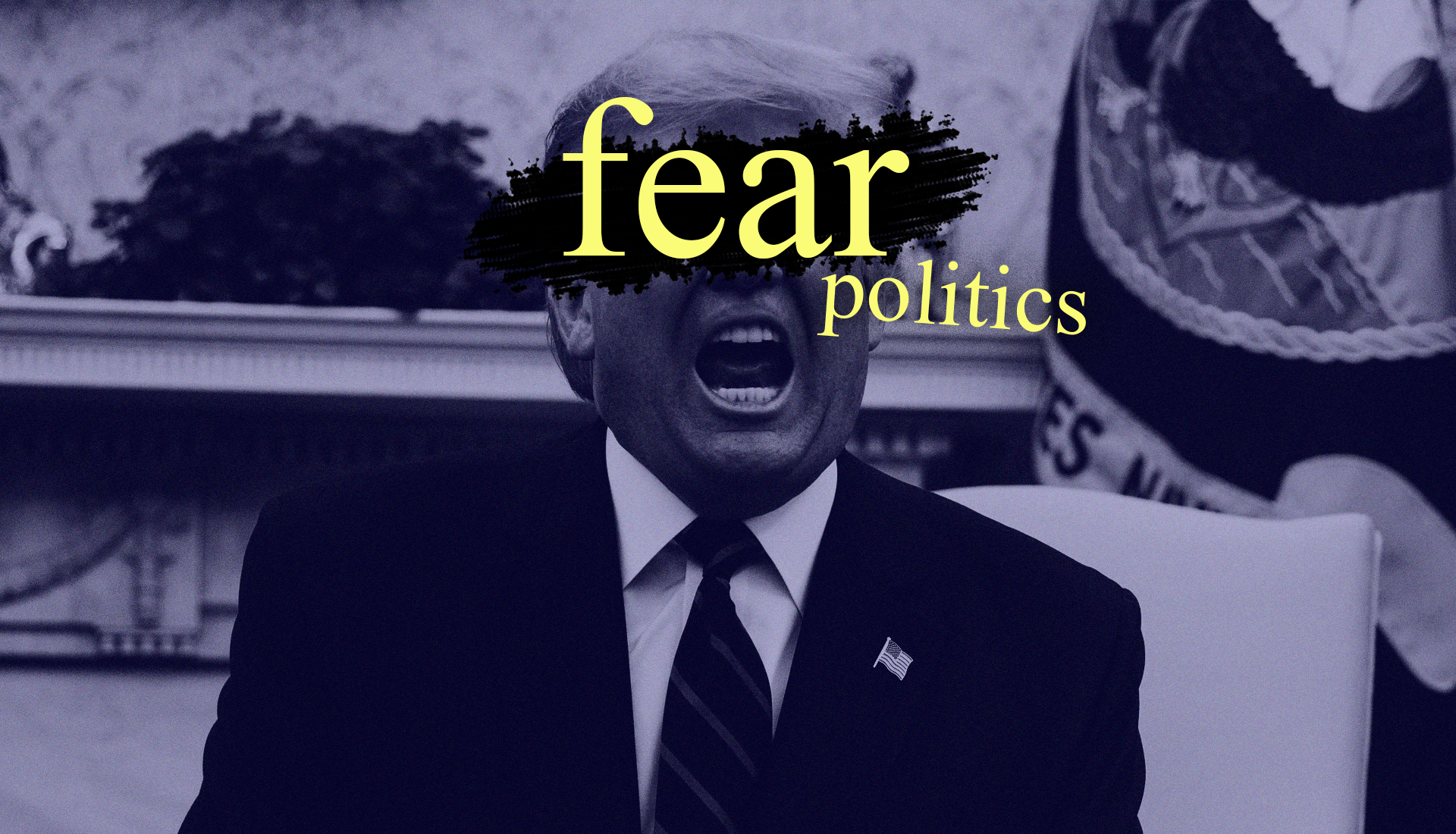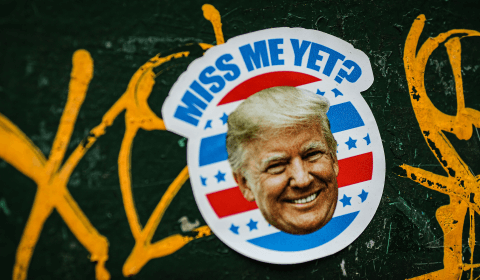The only thing we have to fear is fear itself. And Iranian missiles.
Fear has gone hand in hand with politics since time began. The fear of outside threats enticed early humans to crave organisation and structure – to crave leaders. Since Babylon and the Assyrian empire the divine right of kings played on societies fear of celestial recompense, and every society ever has kept order through fear.
Sometimes it’s the threat of lawful retribution that sustains structural integrity: a stolen loaf of bread results in the offending hand being cut off. Sometimes the retribution is cosmic: challenging a rightful king will result in eternity in this society’s version of hell. Often, it’s the threat of the ‘other’: if the leader is not obeyed, cultural dissidents could invade, kill, and maim.
After the divine right of kings lost its mandating power and democracy took centre stage in the west, blatant appeals to fear faded into a subtler rhetoric. Along with electioneering came the politics of hope.
With huge post-war victories like The New Deal and the fall of the iron curtain, America emerged as a shining beacon of strength and magnanimity on the world stage. It was just as important for US leaders to emphasise diplomatic ties and trade agreements as it was military might, particularly in a unipolar system where the US consented to be the world’s bodyguard in exchange for being its sole superpower.

But the stability of this global contract began to crumble as soon as the first jetliner hit the North Tower in 2001. Ever since Bush declared his War on Terror, fear has been turning the cogs of western politics, particularly in US international relations. The supremacy of the western way of life, and of the US’s impenetrability, was no longer implied after 9/11.
Immediately the true consequences of inventing weapons of mass destruction became clear. Where non-state actors could wield military power of their own, international conflict was no longer a balancing act between the world’s governments, but a free for all. People discovered that their way of life was not inviolable, and their fear demanded an answer. The answer they were given was Iraq.
Twenty years of failed interventionist policy in the Middle East later, and the sticky residue of imperialism clings to policy there like glue. Cultural rivets between the US and its allies, and non-western states, has so fanned the flames of fear created by 9/11 that a whole new generation of children (millennials) has been raised with the fiction that Islam poses an existential threat to democracy. And it’s these conditions that created Trump.
Franklin Roosevelt famously stated in his first inaugural address in 1933 that ‘the only thing we have to fear is fear itself’. If you’re comparing Roosevelt’s widely popular and anti-imperial rule to Trump’s current regime, then simply take all the gregariousness and wisdom of this sentiment and invert it.
When people are exposed to fear – whether actual or imagined – they begin to tighten. In physical terms they tense their muscles, ready for a fight or flight response. In psychological terms, they begin to crave security and order. Promises of quick and simple solutions to perceived immediate threats, and a return to previous stability, is craved rabidly by society the more their anxiety increases. In simple terms: it’s easy to pitch an antidote for an illness if you’re your own patient zero.
This is Trump’s secret weapon.
At campaign rallies in 2015/16 he warned that the US was a nation ‘on the brink of disaster’, describing Mexican immigrants and global trade agreements as threatening American jobs and safety, and radicalised Muslims as poised on the edge of a complete cultural invasion.
Unsurprisingly, many of these threats were greatly exaggerated. According to research into voter perception by psychologist Michele Gelfand Americans greatly overestimate the percentage of people who immigrated illegally. Republicans estimated that 18% of the US population is made up of people who are here illegally, while Democrats estimated that statistic to be less than 13%, on average. The actual figure, according to a 2017 Pew Research study, is closer to 3%. The greater the misperception, the more people said they would vote for Trump in 2020.
Ironically, many real threats – including violence and disease – have declined precipitously over the years, but manufactured or imaginary threats persist.



















